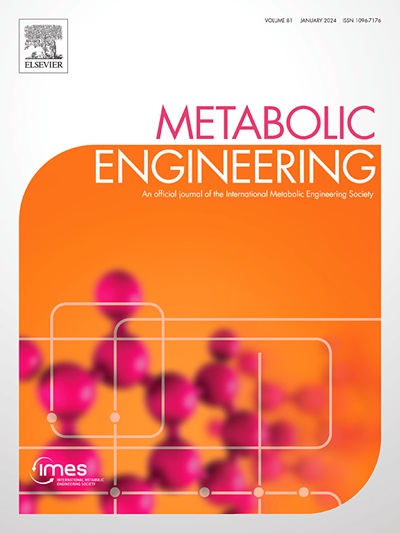Issatchenkia orientalis as a platform organism for cost-effective production of organic acids
IF 6.8
1区 生物学
Q1 BIOTECHNOLOGY & APPLIED MICROBIOLOGY
引用次数: 0
Abstract
Driven by the urgent need to reduce the reliance on fossil fuels and mitigate environmental impacts, microbial cell factories capable of producing value-added products from renewable resources have gained significant attention over the past few decades. Notably, non-model yeasts with unique physiological characteristics have emerged as promising candidates for industrial applications, particularly for the production of organic acids. Among them, Issatchenkia orientalis stands out for its exceptional natural tolerance to low pH and high osmotic pressure, traits that are critical for overcoming the limitations of conventional microbial organisms. The acid tolerance of I. orientalis enables organic acid production under low pH conditions, bypassing the need for expensive neutral pH control typically required in conventional processes. Organic acids produced by I. orientalis, such as lactic acid, succinic acid, and itaconic acid, are widely used as building blocks for bioplastics, food additives, and pharmaceuticals. This review summarizes the key findings from systems biology studies on I. orientalis over the past two decades, providing insights into its unique metabolic and physiological traits. Advances in genetic tool development for this non-model yeast are also discussed, enabling targeted metabolic engineering to enhance its production capabilities. Additionally, case studies are highlighted to illustrate the potential of I. orientalis as a platform organism. Finally, the remaining challenges and future directions are addressed to further develop I. orientalis into a robust and versatile microbial cell factory for sustainable biomanufacturing.
求助全文
约1分钟内获得全文
求助全文
来源期刊

Metabolic engineering
工程技术-生物工程与应用微生物
CiteScore
15.60
自引率
6.00%
发文量
140
审稿时长
44 days
期刊介绍:
Metabolic Engineering (MBE) is a journal that focuses on publishing original research papers on the directed modulation of metabolic pathways for metabolite overproduction or the enhancement of cellular properties. It welcomes papers that describe the engineering of native pathways and the synthesis of heterologous pathways to convert microorganisms into microbial cell factories. The journal covers experimental, computational, and modeling approaches for understanding metabolic pathways and manipulating them through genetic, media, or environmental means. Effective exploration of metabolic pathways necessitates the use of molecular biology and biochemistry methods, as well as engineering techniques for modeling and data analysis. MBE serves as a platform for interdisciplinary research in fields such as biochemistry, molecular biology, applied microbiology, cellular physiology, cellular nutrition in health and disease, and biochemical engineering. The journal publishes various types of papers, including original research papers and review papers. It is indexed and abstracted in databases such as Scopus, Embase, EMBiology, Current Contents - Life Sciences and Clinical Medicine, Science Citation Index, PubMed/Medline, CAS and Biotechnology Citation Index.
 求助内容:
求助内容: 应助结果提醒方式:
应助结果提醒方式:


